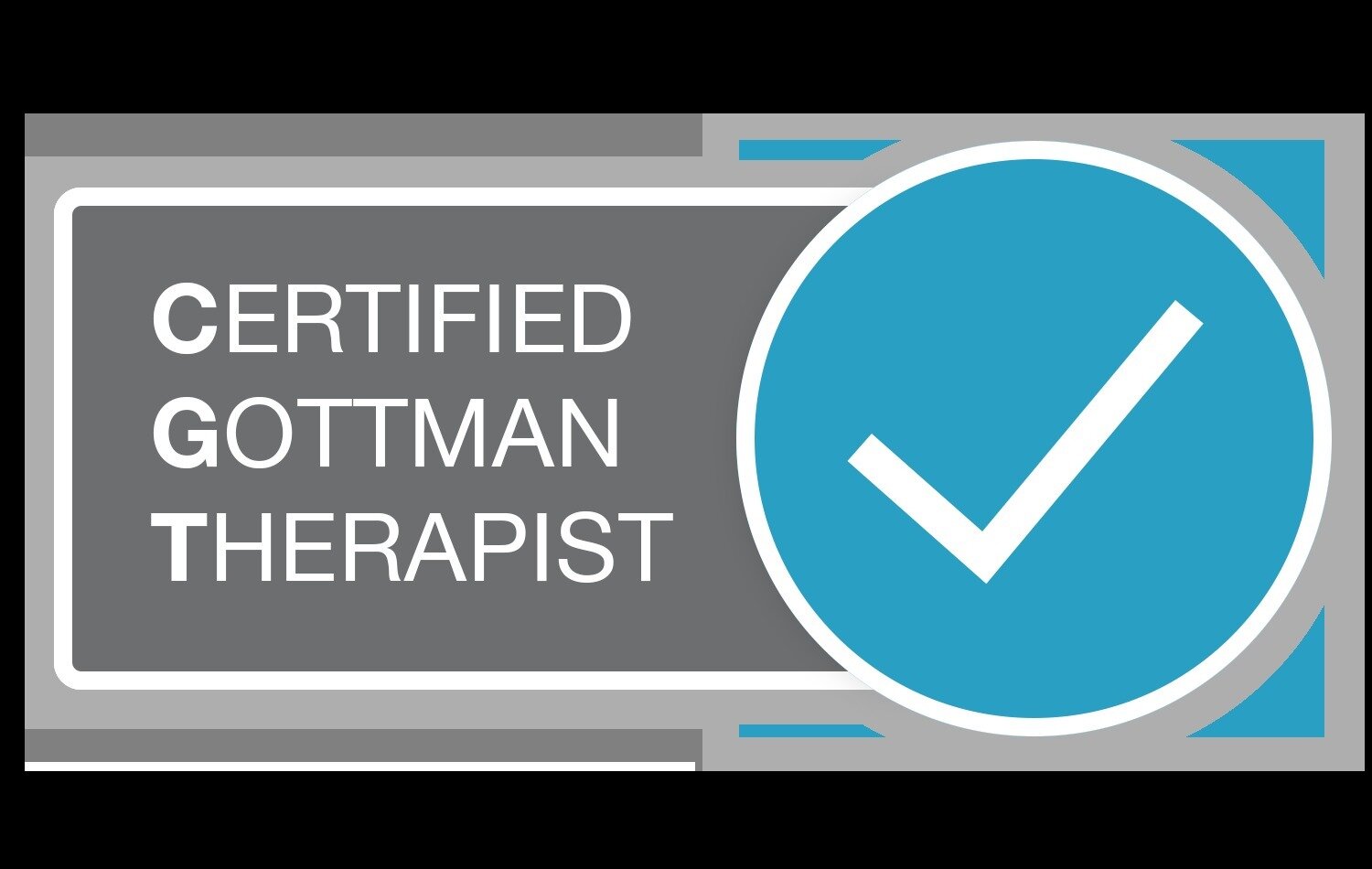Couples & Marriage Counseling
Beverly Clark: "We need a witness to our lives. There's a billion people on the planet...I mean, what does any one life really mean? But, in a marriage, you're promising to care about everything. The good things, the bad things, the terrible things, the mundane things...all of it, all of the time, every day. You're saying 'Your life will not go unnoticed because I will notice it. Your life will not go un-witnessed because I will be your witness'." (Quote on marriage from the film, Shall We Dance)
Do You Feel Lonely in Your Relationship?
Do you feel distant and disconnected from your spouse or partner, sometimes wondering if you really know each other anymore? Are the two of you struggling to get along, resolve conflicts and communicate in a healthy, productive and positive way? Do you wonder if you even still like each other? Perhaps you aren’t fighting, but you aren’t really spending any meaningful time together either and it increasingly feels like the love, passion and intimacy that was once the glue holding you together as a team has faded away. Maybe things between you are tense and although you try to share your experiences or express your deepest thoughts and feelings, you worry that your partner doesn’t understand you or doesn’t care enough to really listen. Or perhaps you find yourselves arguing about everything, from dirty dishes to finances to in-laws and parenting. Do you feel as though you’re just going through the motions or walking on eggshells when you’re around each other? Do you long to be able to rebuild the love and connection you once had that helped you both feel safe, understood and valued in the relationship?
Balancing the stresses and responsibilities of daily life, navigating marriage or relationship problems while nurturing a deep, loving connection at the same time can be difficult. Between jobs, children, caring for aging parents, household responsibilities and trying to navigate a social life, it may seem that one or both of you doesn’t have time for the other anymore. It’s also possible that somewhere along the road, you as a couple quit making each other a priority. Maybe you no longer look forward to or enjoy the time you do spend together. You might end up bickering about mundane things, about your lack of connection, or worse end up in dead silence with nothing to say to each other. Perhaps you are asking yourself, “Am I in love anymore?” or questioning whether your partner still loves you. You may see glimpses of the care, fun and fullness you once enjoyed together and wonder if it’s possible to mend the rift pulling you apart.
All Relationships Have Ups and Downs
According to the research of John Gottman and his colleagues, 69 percent of the issues that couples initially argue about will be the same issues they argue about for the next five, ten, twenty or forty years! Often, these arguments come down to a difference in personality, temperament and/or where and how we grew up. Couples argue about finances, values, parenting, in-laws and more. Sometimes, they say they argue about “nothing… nothing at all” (e.g., tone of voice, a look, etc.). 31 percent of the issues couples argue about are easily solvable through compromise, but often couples struggle to communicate well or attempt to avoid issues all together.
Let’s face it…very few of us have ever seen how to create a good relationship. Our parents, doing the best they could, either showed us aggressive outbursts or were careful to only argue behind closed doors (if they discussed disagreements at all). First of all, all couples disagree. People are not clones; they are different. In fact, human beings seem to have an uncanny ability to seek out and fall in love with the very people that are their opposites! Those differences, initially seeming so deliciously exciting and admirable, more often than not soon become big points of irritation and annoyance! And certain times are especially fraught with conflict opportunities: a move, job loss, retirement, the birth of a new baby, kids leaving the nest, an accident or illness, the loss of a parent, etc. During these and other big life transitions, it’s common for couples to experience greater strain and conflict and be at risk for disconnection. Many couples find it difficult to navigate external stressors as a team, which often leaves one or both partners feeling alone, frustrated and resentful.
It’s completely normal to face challenges in your relationship and feel overwhelmed, hopeless and stuck at times. As children, none of us were taught how to build the perfect relationship, and few of us had healthy relationship role models. We generally don’t teach these things in school, though we probably should. It’s important to note that as humans, we’re hard-wired to notice things that are going wrong. This survival mechanism helps us avoid danger, but it can make it difficult to notice all the things that are going well in our marriages and relationships. This survival mechanism can skew our perspective toward the negative. When we fall into a mostly negative perspective, we are more likely to misinterpret neutral statements as negative, becoming quick to take offense and slow to forgive. We become hypervigilant for slights. We are also more likely to feel ignored, see negative intentions where there truly are none and be overly critical (or worse, contemptuous) of our partners. For example, if one partner greets the other while she/he/they are working, the other is “primed” (by a negative perspective) to see it as a thoughtless interruption rather than welcome it as a sweet gesture of love. Research has shown that couples who feel more satisfied with their relationships and stay together longer recognize the positives far more than the negatives (by a ratio exceeding 5:1) and bring positivity into their every interaction.
As a result of the robust and growing body of research, most (albeit not all) of which has been done by The Gottman Institute in Seattle, Washington, we now know what variables make relationships succeed or fail. From this research, we also know what things you can do to turn your negative perspective around and identify and nurture the strengths and connection in your relationship. By working with a skilled couples therapist, you can learn the tools and develop the skills needed to create a strong, sustainable, supportive relationship.
Marriage Counseling Can Restore Intimacy and Connection in Your Relationship
It is possible to restore happiness and satisfaction to your relationship. At Pathways to Wellness, we know that you, your partner and your relationship are unique. Our therapists are trained in a variety of effective, research-based couples counseling approaches, offering you the individualized, versatile support you need to create the relationship you want.
The Gottman Method is a foundational piece of our approach. Your therapist will adapt proven strategies tailored to fit your unique relationship, as well as your individual personalities, needs and therapy goals. Generally, we begin by helping you explore your relationship on three levels:
Friendship, affection and connection
How you deal with conflict
Shared life goals and vision
In strengths-based sessions, rather than focusing on surface-level relationship or marriage problems, your couples therapist will help you identify and resolve issues at their roots so that you can work toward deep healing that is long-lasting. Your therapist will also help to cast light on your relationship strengths, collaborating with you to create strategies that bring them more fully into action.
Rather than offering cookie cutter solutions or telling you what to do, your therapist will actively collaborate with you both throughout the counseling process. He or she will offer nonjudgmental compassionate support and guidance, helping you and your partner to develop new communication skills and encourage you to practice them in the accepting, relaxed setting of the therapy office. Our therapists have the insight necessary to point out where you are not connecting and help you pause, readjust and come to a shared understanding of each other’s wants and needs.
Over the last 30 years, research has taught us more about what actually makes a relationship work than we’ve ever known, and we now know what components and skills make a fulfilling, loving relationship possible. In addition to the Gottman Method, our therapists are trained in Emotionally Focused Therapy (EFT), Cognitive Behavioral Therapy (CBT), Imago Relationship Therapy, Voice Dialogue (an ego state therapy) and more. Each therapist has the training, listening skills and experience necessary to craft a couples and marriage therapy approach that will work for you. You and your partner can begin to shift your perspectives and build on the strengths that already exist in your relationship. You can discover new ways to process conflict, express your feelings and listen to each other with compassion and understanding. You truly can connect and feel heard and understood.
You may still have questions or concerns about couple’s therapy…
I’m worried that the therapist will take my partner’s side and I’ll feel even more isolated.
It is not your couple’s therapist’s job to take sides or assign blame. Rather, he or she will facilitate communication and connection between you and your partner so that you can make positive changes and take them home with you. You will not be shamed or judged for anything you share during our sessions.
What if we’re told we should break up?
Your therapist will help you and your partner identify your relationship strengths, as well as areas where you need support. Your therapist will not tell you what to do, nor encourage you to break up. Unlike any other time in history, if you want to work on and strengthen your relationship, we have the tools, interventions and techniques that can help you both move toward the relationship you want.
We’ve heard that couples and marriage counseling is expensive and takes a long time.
We encourage you to consider the emotional, mental and financial cost of separation or divorce. And, if you have children, we encourage you to remember that your relationship is their foundation and their model. By seeking couples counseling, you can strengthen that foundation and begin to demonstrate what a loving, healthy relationship looks like. Even if you don’t have children, resolving relationship conflicts and cultivating new paths to intimacy can have profoundly positive effects on your long-term health and wellbeing, increasing your overall satisfaction with life as a whole.
Pathways to Wellness offers a variety of therapy options tailored to couples. You and your partner can opt for regular sessions, weekend couple’s workshops, double sessions, triple sessions or intensive couple’s therapy, which can last up to four or five days. Regardless of the issues you are struggling with, we can help you find a therapy model that works for you.
You Can Enjoy a Healthy Relationship
We invite you to call us at 714-432-9856 today to set up an appointment. In addition to couples counseling for opposite sex partners, we offer same sex couples counseling and marriage counseling.











